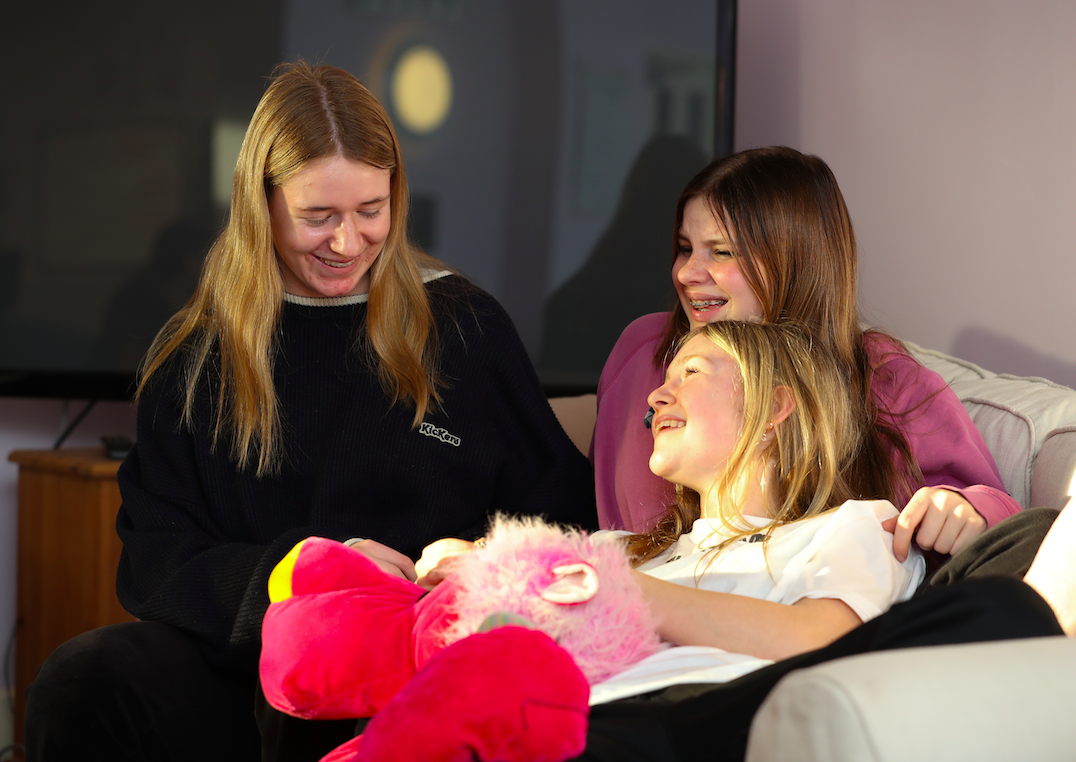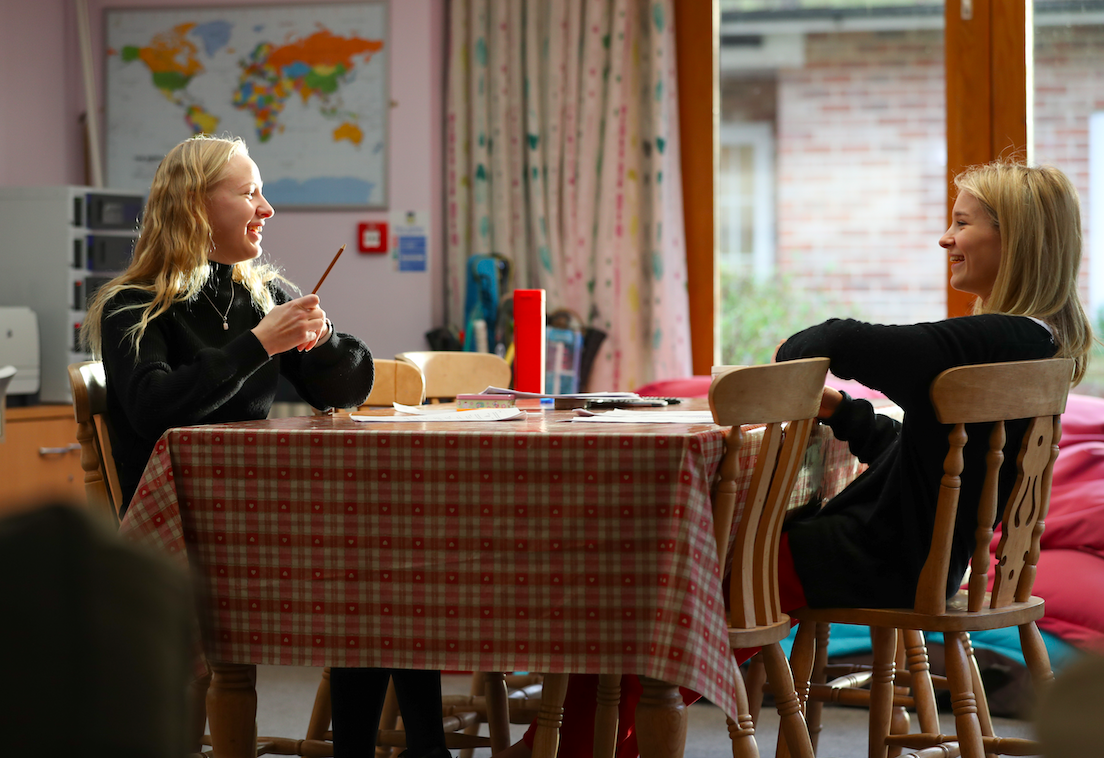Housemaster of Dorset House and Teacher of Economics Adam Beales offers his advice and top tips for new parents looking to make the transition to a new boarding school as smooth as possible…
 As the long summer break nears its end, those children making the transition to their new school will now be looking forward with some mixed anticipation. They will have those fond memories of the school they’ve left behind, and they’ll have known exactly what was required to exist, the ‘rules’, the terminology, and the rubric. But looking ahead they’re not so sure about their new school, even if they have a sibling there.
As the long summer break nears its end, those children making the transition to their new school will now be looking forward with some mixed anticipation. They will have those fond memories of the school they’ve left behind, and they’ll have known exactly what was required to exist, the ‘rules’, the terminology, and the rubric. But looking ahead they’re not so sure about their new school, even if they have a sibling there.
So, what to take and what to do, and how should you, as parents, approach things?
Here are some of my own ideas as a houseparent at Bryanston, and I write this as I wait eagerly for the imminent arrival of Dorset House’s new charges.
What to take (this is not an exhaustive list):
- duvet, duvet covers (x2) and pillow (surprisingly, these are the most often forgotten items because they’re the last to go in the car).
- photos of family, friends and pets
- Blu-Tack and drawing pins for those photos
- worn-in shoes (if possible) – newly bought/too shiny shoes can make the first week uncomfortable and can be discarded!
- blister plasters (‘Compede’) for new school and sports shoes
- phone and laptop chargers – in good condition otherwise they can be removed by health and safety
- portable speaker and headphones
- a favourite dressing gown
- slippers/sliders
- favoured tuck products can be useful: a mug for tea plus suitable tea bags, jam, or spreads for breaktime or post-prep toast.
- a teddy bear - an old and constant friend!
- casual clothes for those times when school dress can be discarded
- a half-read good book, i.e. something that’s been started and enjoyed this summer
- postage stamps and some cards – yes, they’re still useful!
- playing cards – a great way to make new friends
- pens and highlighter markers
- name tapes and stickers for some of the above items
- a padlock for a lockable cupboard.

What to do – new pupil
- Try something new in your first term – anything will do. You’ll surprise yourself at how well you’ll do and how much you’ll learn.
- You won’t be the only one who is finding it hard, so it is ok to share your feelings with your new friends. This applies to boys and girls.
- Ask your houseparent for help if you’re not sure about something, or, better still, ask an older pupil who’s been assigned to help you – there are no stupid questions.
- Be brave – ask a question in class. One will do. You will feel better, and your teacher will reward you.
- Try not to show off. This is easy to do when you’re anxious or over-excited.
- Be resilient - don’t be put off if you don’t make it into a sports team in the first few weeks. Keep trying, listen to your coaches.
- Don’t just stay with the pupils who you arrived with from your prep school.
- You’ll be exhausted at the end of your first day, and more so at the end of your first week. Sleep is your best friend.
- Get to know the lingo of your new school.
- If you can be, be kind and compassionate to others, some of whom may be struggling or will be feeling the same as you are. Overseas pupils or first-time boarders will need your help more than others.

What to do – new parents
- If you can, in advance, ask advice from someone you trust who’s had a child at the school. But don’t listen to ‘dinner party’ gossip or opinions about which boarding house is best.
- Trust your child’s new houseparent. While they will obviously not know your child as well as you do, they have vast knowledge and experience, and will see things in the round.
- Check the school’s dress code, shoes can be especially tricky to get right, partly because there will be a disparity between what you and your child thinks is appropriate. Don’t buy too many of what might be the wrong shoes at this stage.
- Find out about how weekend leave works and make sure you ask well in advance. There is nothing worse than being the one who’s forgotten to ask for leave because your child will get anxious. Advanced warning of essential absence for those hard to book medical or dental appointments is advised.
- Get used to using the new school systems – ‘parent areas’ on the website or ‘leave’ requests are often different at each school.
- When the first day of term finally comes, don’t arrive too early or too late. Check the traffic for local events.
- Don’t overstay your welcome on the first day; this is hard to judge. It can be an anxious time for all, but houseparents want to get started doing their job, and you have to leave eventually. Your child will need to get on with things and you need to allow them to go solo.
- Dorms will have been thought through as far as possible. They won’t always be perfect, but things balance out in time.
- Tuck, yes, this is still allowed, but arriving with large volumes of sweets, crisps, and fizzy drinks will not go down well. (NB If you allow your child access to Amazon Pantry, you must police this carefully!)
- Meet ‘Matron’ on the first day – this is a crucial relationship over the years, and matrons are such useful and kind eyes and ears in the house. They need looking after! They will do most things for you if you look after them, although presenting a huge pile of clothes to name tape is not a good way to start.
- You will know how to say goodbye, but perhaps you may wish to ask your child beforehand what might be best – this usually changes when the moment comes. Try not to cry until you’re in the sanctity of your own car.
- Contact – another very hard one to get right.
- Each school will have their own rules as to when mobile phones can be accessed – this will be the same for the whole year group, so do ask about this to avoid any misunderstandings.
- There will be times when your child will be tired and emotional, hence their evening texts or phone calls might be a little upsetting. Breathe, take a step back, they’ll usually have forgotten about it in the morning although you may have had a sleepless night.
- While you’ll be desperate to hear how the school day has gone, don’t be anxious if you don’t hear from your child – be delighted that they’re busy.
- Hearing from you can make your child emotional, especially at the start. Newsy emails or texts can be easier for everyone, and sometimes the in-depth chats can wait until that exciting first weekend leave.
- Letters or cards are still a real tonic at any stage, so try to get into a routine or ask other family members to write as well.
- Despite what your child might say, you will be allowed to support sports events and other school events. If in doubt, ask your houseparent.
- Play the long game. Your beloved child will probably have a few bumps and scrapes along the way, but they’ll get there in the end.
Above all, each child is completely unique. You know this and the school knows this, but it will inevitably take time to get everyone working to the same hymn sheet. Although your houseparent will have sixty-plus children to look after, they will treat your loved one as an individual who they’ll care for and nurture over the years.
 We all hope for a trouble-free year without the challenges faced due to the pandemic, so let’s now look forward with real optimism and excitement to what lies ahead. Good luck for the next week or two and remember that you are not alone in what you’re going through at this time of great change and anticipation.
We all hope for a trouble-free year without the challenges faced due to the pandemic, so let’s now look forward with real optimism and excitement to what lies ahead. Good luck for the next week or two and remember that you are not alone in what you’re going through at this time of great change and anticipation.
 As the long summer break nears its end, those children making the transition to their new school will now be looking forward with some mixed anticipation. They will have those fond memories of the school they’ve left behind, and they’ll have known exactly what was required to exist, the ‘rules’, the terminology, and the rubric. But looking ahead they’re not so sure about their new school, even if they have a sibling there.
As the long summer break nears its end, those children making the transition to their new school will now be looking forward with some mixed anticipation. They will have those fond memories of the school they’ve left behind, and they’ll have known exactly what was required to exist, the ‘rules’, the terminology, and the rubric. But looking ahead they’re not so sure about their new school, even if they have a sibling there.

 We all hope for a trouble-free year without the challenges faced due to the pandemic, so let’s now look forward with real optimism and excitement to what lies ahead. Good luck for the next week or two and remember that you are not alone in what you’re going through at this time of great change and anticipation.
We all hope for a trouble-free year without the challenges faced due to the pandemic, so let’s now look forward with real optimism and excitement to what lies ahead. Good luck for the next week or two and remember that you are not alone in what you’re going through at this time of great change and anticipation.